CARICOM-US Trade
In September 2021, The SRC and the U.S. Embassy (Barbados) agreed to work together on projects to promote institutional collaboration with the aim of revitalizing the U.S. – Caribbean trade and investment agenda. Through funding provided by the Embassy, the Project was designed with three main aims in mind:
(i) outreach, advocacy, and awareness-raising events and activities
(ii) focused research on new and emerging issues and opportunities arising under the relationship
(iii) creating and sustaining academic and student-based partnerships between U.S. and Caribbean institutions
Through this initiative, it was anticipated that stakeholders across government, academic, student, private sector and general communities would gain a deeper understanding, share ideas and ultimately increase the possibilities for meaningful trade and investment relationships between the United States and the Caribbean.
On this page, we highlight some of the fruits of that continuing collaboration. We will continue updating the page, as we continue to develop output and concrete suggestions on that will result in the creation of a mutually beneficial relationship between the US and CARICOM.
SRC Trading Thoughts
‘America First’ and the Future of US-CARICOM Trade
by Alicia Nicholls
U.S. President Donald J. Trump’s renewed ‘America First’ trade policy is a must-watch development for the Caribbean given the U.S.’s role as the region’s primary trading partner – both as an export market and an import source. In 2023, CARICOM countries exported US $9.76 billion in goods to the U.S. market, importing US $18.9 billion from that country, and resulting in a longstanding trade deficit with the U.S. Under the Caribbean Basin Initiative (CBI) and its constituent legislation such as the Caribbean Basin Economic Recovery Act (CBERA) and the Caribbean Basin Trade Partnership Act (CBTPA), most Caribbean Community (CARICOM) member states have enjoyed preferential access to the U.S. market for their goods since the 1980s.
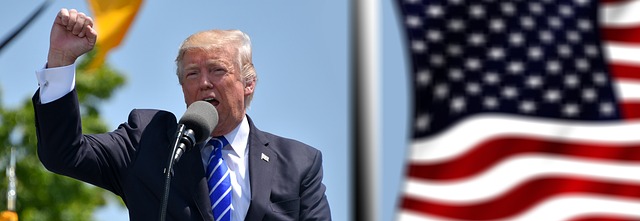
Reshaping US-Caribbean Trade Relations: Trump 2.0 and Beyond
SRC Trading Thoughts
Will 2024 be a Pivotal Year for US-Caribbean Economic Relations?
By Alicia Nicholls
It is the start of a new year; one filled with promise coupled with uncertainty amidst a growing climate crisis, a forecasted deceleration in global growth and escalating geopolitical tensions and instability in several parts of the world. While the expected global recession of 2023 failed to materialize, we trade analysts are keeping a keen eye on the impact of the on-going geopolitical tensions, including the Russia-Ukraine and Israel-Palestine conflict, on global trade. Moreover, the international media has dubbed 2024 a historic “mega-election” year as some of the world’s largest countries, including the Caribbean region’s biggest trading partner, the United States of America (USA), are poised to hold general elections. This first SRC Trading Thoughts for the year reflects on US-Caribbean economic relations, particularly their trading relationship, in light of the pending US presidential elections.
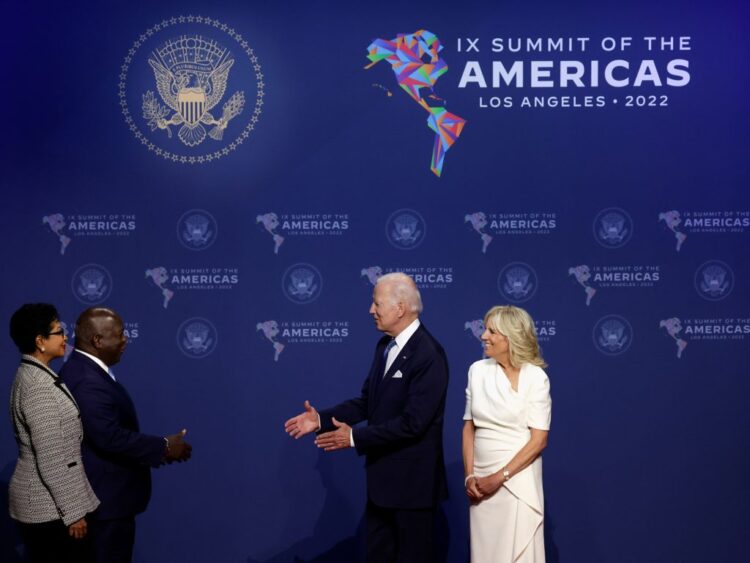
SRC Working Paper
Prepared by Ms. Natallie Rochester & Ms. Andrea Ewart for the SRC
CARICOM – U.S. Trade and Investment Relations | Dynamising CARICOM – U.S. Engagement in the New Economy
This paper considers the prospect of enhanced bilateral cooperation on trade and investment with the aim of positioning the Caribbean to better take advantage of US market opportunities through renewable energy, digital trade, nearshoring and agribusiness.
While this paper applies the concept of the “new economy” to these four sectors, they are not in and of themselves “new”. Rather, the discussion and recommendations incorporate strategies that aim to capture the use of technology and qualities of innovation which are the consistent themes in the definitions, descriptions, and explanations of the “new economy.” For the purposes of this paper, the term ‘Caribbean’ is limited to the twelve (12) English-speaking independent member states of CARICOM, namely: Antigua & Barbuda, The Bahamas, Barbados, Belize, Dominica, Guyana, Grenada, Jamaica, St. Kitts & Nevis, St. Lucia, St. Vincent & the Grenadines, and Trinidad & Tobago.
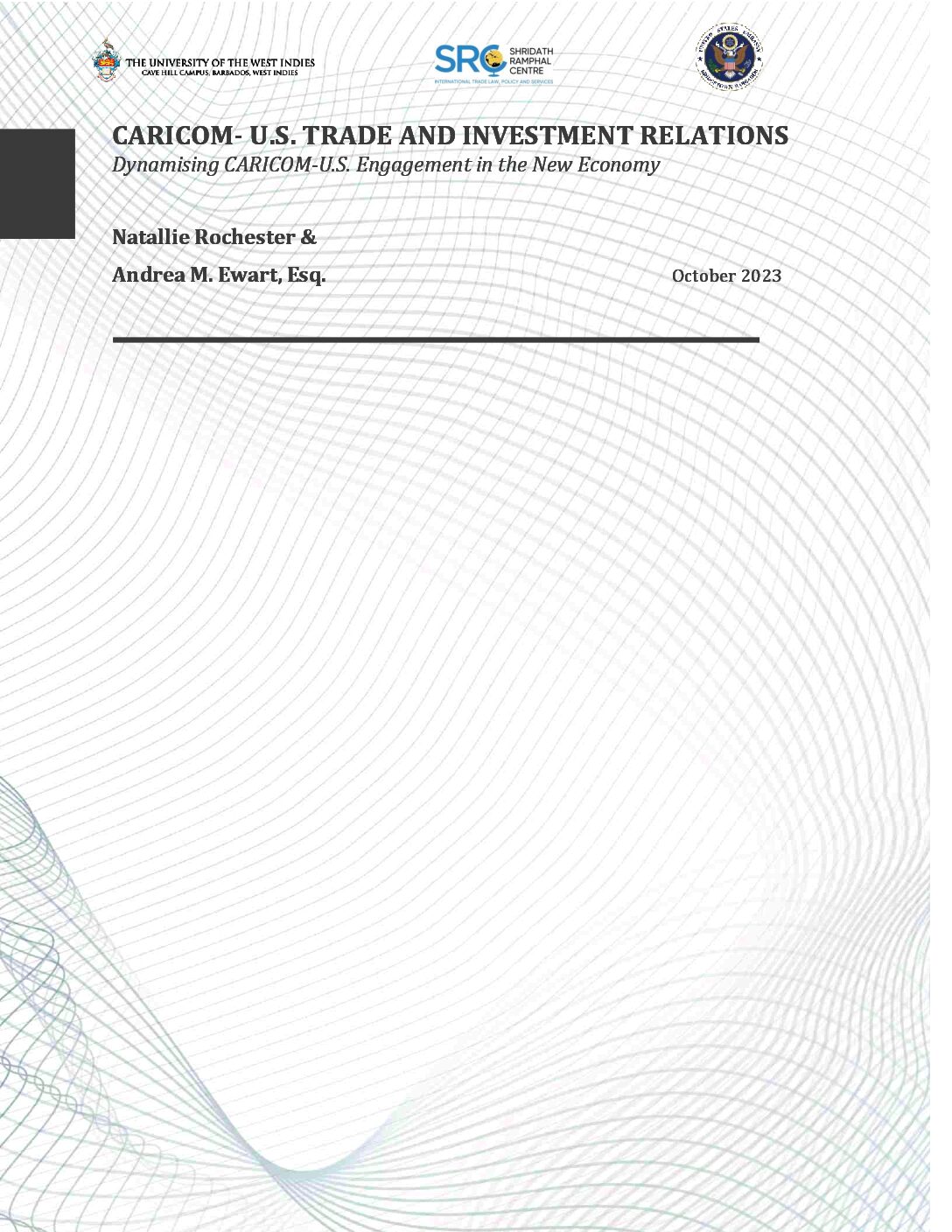
SRC White Paper
Prepared by Ms. Andrea Ewart for the SRC
Setting the Agenda for Enhanced CARICOM-U.S. Trade and Investment Relations
This SRC White Paper explores the existing CARICOM-U.S. framework for trade and investment, critiques its shortcomings, and outlines an agenda to enhance the CARICOM-U.S. trade and investment relationships highlighting short-, medium- and longer-term options to address the existing shortcomings and expand FDI inflows.
The White Paper also discusses overarching trends in bilateral trade and investment relations. Climate resilience and renewable energy, food production and agro-processing, the “blue economy”, “nearshoring” and “friend-shoring”, facilitation of digital trade, and transportation and logistics are six sectors identified as having the potential to reinvigorate Caribbean and U.S. private sector engagement.
The White Paper further argues that the goal for CARICOM should be to craft a trade and investment partnership framework in which key areas for mutually beneficial cooperation are identified. Drawing on similar U.S. initiatives in other parts of the world, the White Paper provides instructive examples that could be considered in the Caribbean context. It concludes with the recommendation that the Trade and Investment Council (TIC) established under the U.S.-CARICOM Trade and Investment Framework Agreement (TIFA) be used to initiate discussions with the U.S. to reorient the relationship and offers a proposed agenda for the next TIC meeting to accomplish this goal.
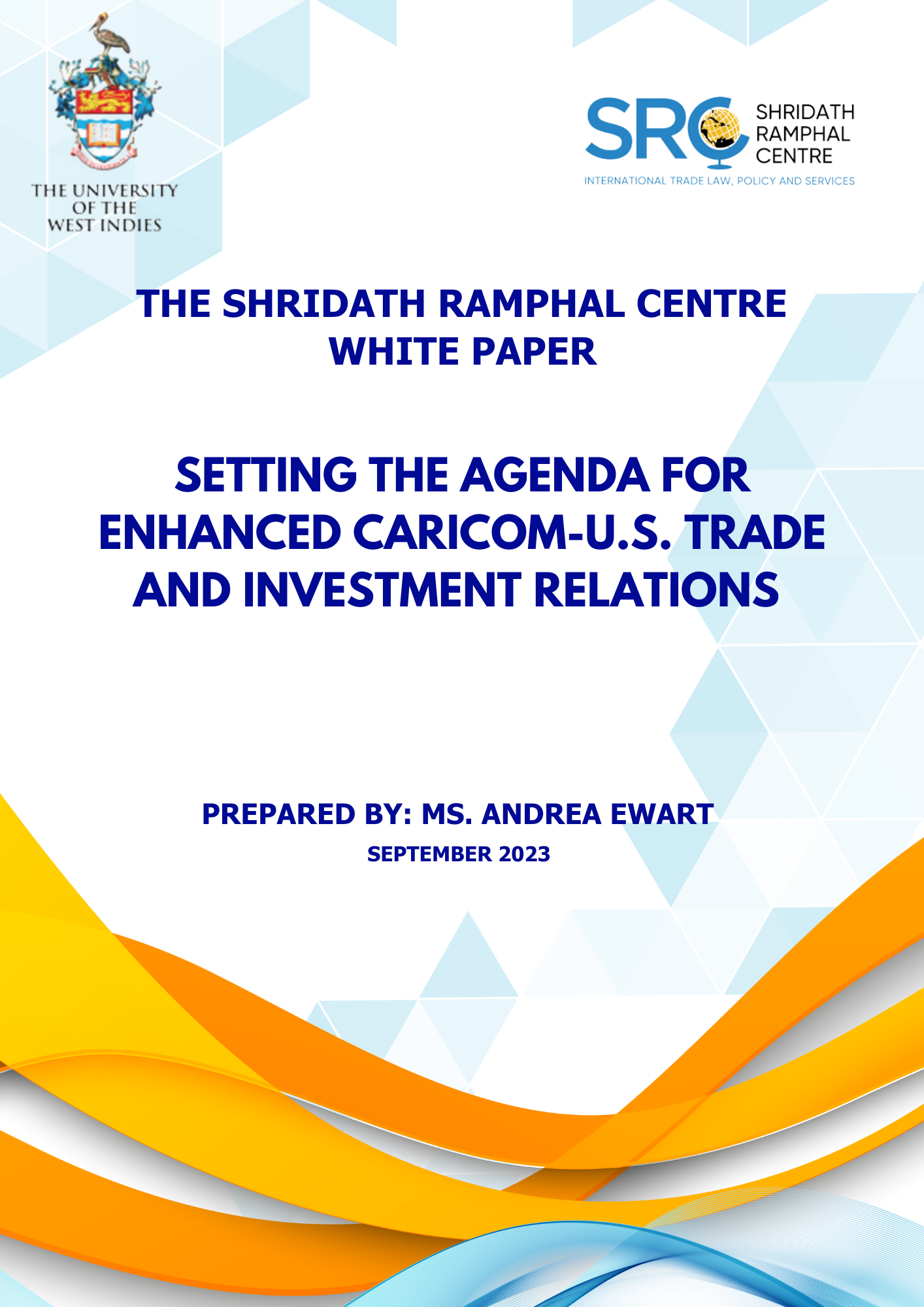
Policy Brief
Chibole Wakoli and Jan Yves Remy
An Overview of the Trading Arrangements Between the United States and Africa
and the United States and the Caribbean Community
The year 2022 was an important one for the United States’ engagement with the regions of Africa and the Caribbean: in June, the Biden Administration met with leaders of the Caribbean Community (CARICOM)1 separately and as part of the Summit of the Americas held in Los Angeles; in December, the Biden Administration invited leaders of African States to a series of meetings in Washington D.C. to discuss, among other things, the renewal of the trading relations under the African Growth and Opportunity Act (AGOA).
It is against this background that this SRC Policy Brief seeks to initiate a discussion about the trading arrangements that define the United States’ engagement with Africa and with CARICOM, with a view to identifying what lessons might usefully be drawn across those different configurations of relationships.
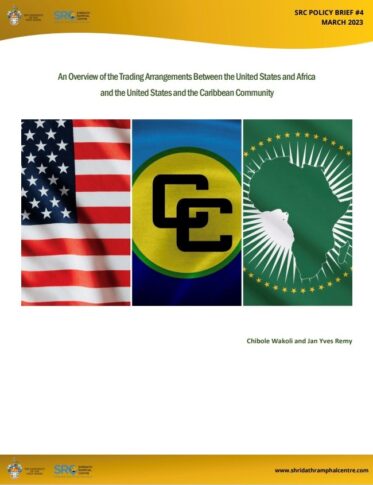
US-CARICOM Trade and Investment Relations Webinar Series

Webinar 2 Report
Dr. Scott B MacDonald
Exploring Business Opportunities For and With The Private Sector
A Transactional Focus
Webinar 3 Report
Angelica Herrera Muñoz & Ana Claudia Moran
TIFA/TIC Trade Relations Between the United States and Uruguay
Assessment of the Trade Agreement and Identification of Sectors with Greater Opportunity
US-CARICOM Trade and Investment Relations Webinar Series

Webinar 2 Report
Dr. Scott B MacDonald
Exploring Business Opportunities For and With The Private Sector
A Transactional Focus
Webinar 3 Report
Angelica Herrera Muñoz & Ana Claudia Moran
TIFA/TIC Trade Relations Between the United States and Uruguay
Assessment of the Trade Agreement and Identification of Sectors with Greater Opportunity
US-CARICOM Trade and Investment Relations Webinar Series

Webinar 2 Report
Dr. Scott B MacDonald
Exploring Business Opportunities For and With The Private Sector
A Transactional Focus
Webinar 3 Report
Angelica Herrera Muñoz & Ana Claudia Moran
TIFA/TIC Trade Relations Between the United States and Uruguay
Assessment of the Trade Agreement and Identification of Sectors with Greater Opportunity
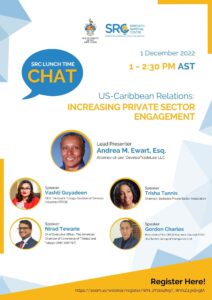
Policy Brief
Andrea Ewart, Esq
US-CARICOM Trade and Investment Relations: Increasing the Participation of the Private Sector in Caribbean-US Engagements
Increasing Private Sector Engagement
SRC Trading Thoughts
The 9th Summit of the Americas as a Reset for CARICOM-US Economic Relations
By Dr. Jan Yves Remy
Whatever one might think of the politics of the Ninth Summit of the Americas due to take place 6-10 June in Los Angeles, one thing is incontrovertible: for CARICOM leaders, the hemispheric meeting is an opportunity to upgrade economic and trade relations with the United States, at the highest levels. We must not squander it.
CARICOM’s formal trading relationship with the US is outdated, fragmented and rudderless. Unlike the case with many other countries in the Western hemisphere – even the smallest ones like Central America and the Dominican Republic – CARICOM still has no bespoke reciprocal free trade agreement with the United States. Some islands, like Trinidad and Tobago, Suriname and Jamaica have formalized bilateral deals in place, but they are outdated, as are the existing preferential access agreements that originate from the 1980s. A framework agreement for trade and investment negotiated in 2013 is barebones and underutilized. While CARICOM and the United States are both Members of the World Trade Organization, they do not enjoy a particularly close relationship in that forum.



 Subscribe to the SRC
Subscribe to the SRC